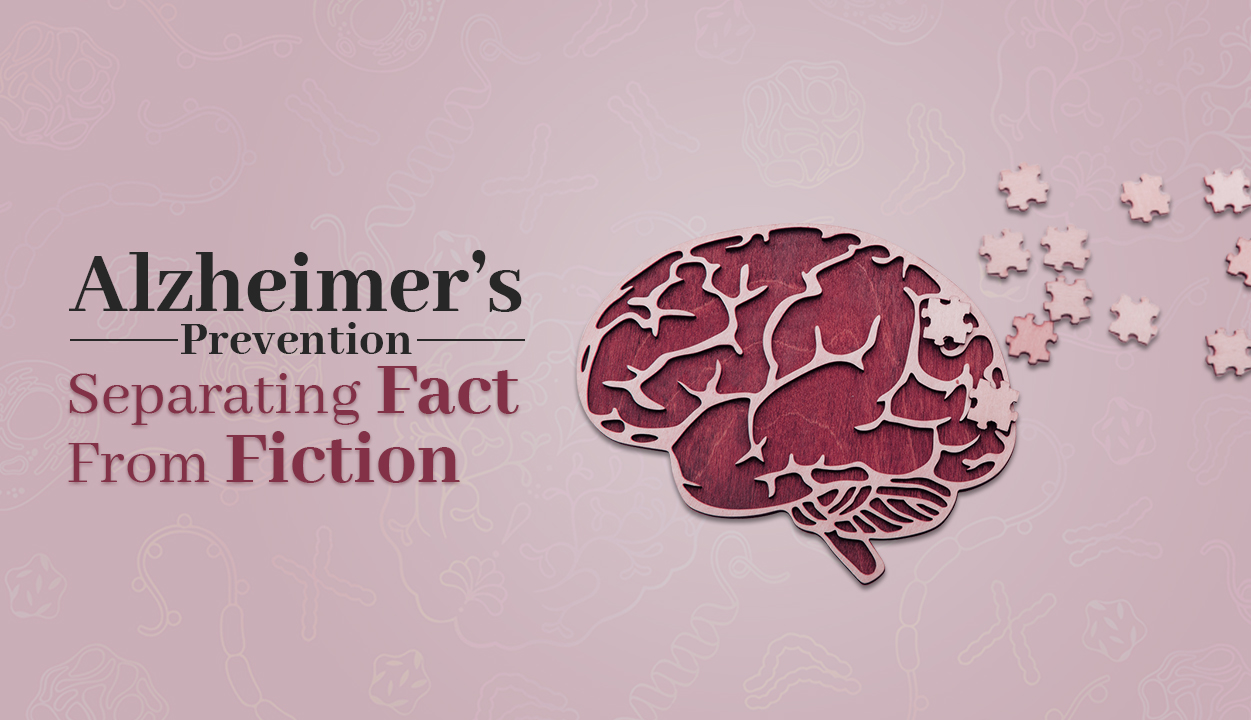
Alzheimer’s Prevention: Separating Fact from Fiction
Alzheimer’s is a condition that impacts the brain, often resulting in memory loss and impacting cognitive health. Although it can affect individuals of any age, it is more frequently observed in older adults. To navigate this condition effectively, it’s essential to gain a comprehensive understanding of the disease, recognize its signs, and distinguish between prevalent myths and facts.
Understanding Alzheimer’s Disease
Alzheimer’s is a smaller part of a larger condition known as dementia. It’s the most prevalent type, but it’s essential to know that there are other types of dementia, each with its own causes and effects.
Signs of Alzheimer’s disease can include forgetting important tasks, getting lost easily, having trouble communicating, and struggling with decision-making. These signs can be distressing, but it’s crucial to remember that not everyone who forgets something has Alzheimer’s.
To prevent Alzheimer’s, we need to adopt a holistic approach: eat brain-healthy foods, stay active, prioritize sleep, manage stress with techniques like meditation, stay socially engaged, and challenge your mind with puzzles and cognitive exercises. These steps supports our cognitive health and lower Alzheimer’s Disease risk.
Moreover, there are numerous myths that surround Alzheimer’s, and we should know the real facts.
Myths vs. Realities: Unraveling the Truth About Alzheimer’s
Myth 1: Alzheimer’s is a normal part of aging.
Fact: Alzheimer’s is not a typical aspect of getting older. While some memory changes may occur as we age, Alzheimer’s represents a more severe cognitive decline that is not considered a natural part of the aging process.
Myth 2: Alzheimer’s is always genetic.
Fact: While genetics can play a role in some cases, Alzheimer’s is not solely determined by your genes. Most people with Alzheimer’s do not have a direct family history of the condition. It’s influenced by complex interactions between genes and other risk factors.
Myth 3: There’s a magic pill or food that prevents Alzheimer’s.
Fact: Currently, there is no known magic pill or specific food that can prevent Alzheimer’s or dementia. The best approach to reduce your risk factor is prevention, including a balanced diet, regular exercise, staying mentally and socially active, and engaging in cognitive exercises.
Myth 4: Alzheimer’s only affects memory.
Fact: Alzheimer’s can affect more than just memory loss. It interferes with how messages are sent and received in the brain, leading to a range of cognitive and functional impairments. Common signs include difficulties with problem-solving, decision-making, language, and spatial orientation, in addition to memory loss.
Myth 5: Alzheimer’s is contagious.
Fact: Alzheimer’s is not contagious. It is not caused by viruses, bacteria, or any form of transmission from person to person. It is a complex neurodegenerative condition with various contributing factors, but it cannot spread like a contagious disease.
Myth 6: Aluminium causes Alzheimer’s.
Fact: There was once a belief that exposure to aluminium, such as through cookware or antiperspirants, could cause Alzheimer’s. However, extensive research has not found a clear link between aluminium and the development of Alzheimer’s.
Myth 7: Aspartame causes Alzheimer’s.
Fact: Aspartame, an artificial sweetener used in many sugar-free products, has been the subject of some research regarding cognitive function. However, scientific studies have not provided conclusive evidence linking aspartame to memory loss or Alzheimer’s disease.
Myth 8: There is no quality of life with Alzheimer’s.
Fact: While Alzheimer’s can be a challenging condition, especially in advanced stages, individuals with Alzheimer’s can still experience moments of joy, connection, and a meaningful quality of life.
Myth 9: Everyone who has Alzheimer’s becomes angry and aggressive.
Fact: Behavioural changes, including aggression, can occur in some individuals with Alzheimer’s, but not everyone experiences these symptoms. The behavioural and psychological symptoms of Alzheimer’s vary widely among individuals.
Understanding Alzheimer’s can be a bit tricky, but knowledge is power. By dispelling myths and focusing on the facts, you can now make informed decisions about your cognitive health or of your loved ones.
If you have concerns about Alzheimer’s disease, we encourage you to consult a doctor at Yashoda Super Speciality Hospital. You can book an appointment here – http://182.79.136.75:62/
